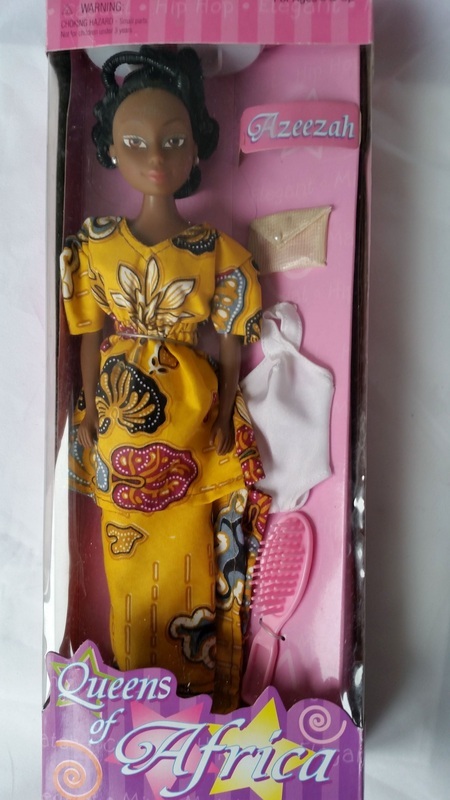|
The Breadcrumbs widget will appear here on the published site.
Toy Industry, Are You Listening?
Move over, Barbie: A new face has entered the fashion doll market overseas. And its putting the perky, proportionally impossible blonde doll to shame.
In fact, Nigeria's Queens of Africa line recently overtook Barbie, the Queen Mum of girl-targeted toys, in the country's sales numbers. While Barbie’s numbers have been dropping consistently worldwide for the last few quarters, Queens of Africa took off, now accounting for about 10-15% of sales in Nigeria’s toy market. The creator, Taofick Okoya, says he was inspired to start the company after he tried shopping for his young niece’s birthday and turned up zero dolls that looked like her, and after hearing a heartbreaking comment from his daughter about her skin color. Intended to give girls of color confidence, the dolls are stately and statuesque, dressed in colorful, printed patterns reminiscent of styles seen in Africa. Some have their hair in braids, some wear head wraps, and all represent one of the three most prominent African groups in Nigeria: Igbo, Yoruba, and Hausa.
Though sales were slow at first—Okoya had a hard time convincing retailers that a doll with African features would sell—they’ve recently knocked Barbie clean off her pink, plastic perch in terms of sales. Check it out for yourself: The online shop that sells Q of A is completely and totally sold out. Okoya says he hopes to make more dolls with a wider range of physical features soon. He's also launched an accompanying book series starring the dolls and has plans for a cartoon.
No word yet on whether they’ll be expanding internationally, but fingers crossed we’ll see them in a Toys 'R' Us soon. It's no secret that we tend to take a contrary stance on a lot of issues here at Ravishly, but this is definitely a cause we can get behind. The lack of toys that represent kids of color has long been lamented. Right here in the States, the famous Clark experiment showed that African-American children, when asked to describe dolls of different skin colors, overwhelmingly applied negative ideals to dark-skinned dolls—a study often cited as (further) proof of just how influential our (still) overwhelmingly WASPy world is on impressionable kids. Toy retailers, as detailed in the link above, have come under fire in the U.S. recently for under-stocking African-American themed dolls, and when they do, jacking up the prices. The runaway success of Queens of Africa proves beyond a shadow of a doubt that not only Nigeria, but the world, is ready to move away from Barbie's stiff, stilted, one-dimensional stranglehold on the industry. The industry demands more realistic, down-to-earth toys...now. Lastly, we love that Okoya chose to cast the dolls as "Queens"—it brings to mind that heart-melting Humans of New York story we reported on yesterday. Principal Lopez chose purple as her school's colors because “purple is the color of royalty...(my students) are part of a royal lineage going back to great African kings and queens.” Girls, never forget you’re a queen—but if you’d rather be a princess, they’ve got those, too. #Real #Ravishly #QueensOfAfrica #MoveOverBarbie #WhatThePeopleWant #EthicalConsumerism Visit our shop and subscribe. Sponsor us. Submit and become a contributor. Like us on Facebook and follow us on Twitter. CommentsComments are closed.
|
|










